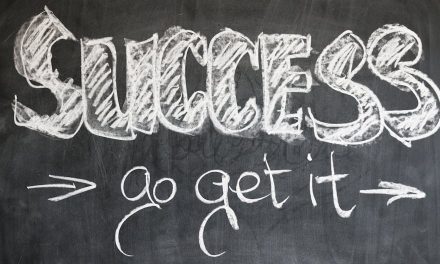Table of Contents
- Introduction
- The Role of Victimhood Narratives in Maintaining Privilege
- Deconstructing Reverse Discrimination Arguments: A Critical Analysis
- The Power of Gaslighting: Examining Manipulative Tactics in Privilege Defense
- Unpacking Colorblindness: Interrogating the Rhetoric of Denial in Privilege Discourse
- Q&A
- Conclusion
Analyzing Rhetorical Tropes in Counter-Resistance: Unveiling the Defense of Privilege.
Introduction
“Defending Privilege: Analyzing Rhetorical Tropes in Counter-Resistance” is a scholarly work that delves into the examination of rhetorical tropes employed in the defense of privilege. This analysis aims to shed light on the strategies and tactics used by individuals or groups to maintain and justify their privileged positions in society, despite growing calls for social justice and equality. By dissecting these rhetorical tropes, the book offers valuable insights into the ways in which privilege is defended and perpetuated, ultimately contributing to a deeper understanding of power dynamics and social inequalities.
The Role of Victimhood Narratives in Maintaining Privilege

Privilege is a concept that has gained significant attention in recent years, particularly in discussions surrounding social justice and inequality. It refers to the advantages and benefits that certain individuals or groups enjoy simply by virtue of their social position or identity. While privilege can manifest in various forms, such as race, gender, or socioeconomic status, it is often defended and maintained through the use of rhetorical tropes. In this article, we will explore the role of victimhood narratives in maintaining privilege and analyze the rhetorical strategies employed in counter-resistance.
One common rhetorical trope used to defend privilege is the victimhood narrative. This narrative portrays those who hold privilege as victims, oppressed by the very groups they have historically marginalized. By positioning themselves as victims, individuals or groups can deflect attention away from their own privilege and instead focus on the perceived threats to their status quo. This tactic is often employed to undermine efforts to address systemic inequalities and maintain the existing power structures.
A key aspect of victimhood narratives is the portrayal of privilege as under attack. This is achieved through the use of language that emphasizes the loss or threat of loss. Phrases such as “our way of life is being eroded” or “our traditions are under attack” are commonly used to evoke a sense of fear and urgency. By framing privilege as something that is being taken away, those who hold it can rally support and justify their resistance to change.
Another rhetorical strategy used in victimhood narratives is the inversion of power dynamics. This involves portraying those who challenge privilege as the real oppressors, while positioning the privileged as the oppressed. By flipping the power dynamic, individuals or groups can cast doubt on the legitimacy of calls for equality and justice. This strategy is often employed to discredit social movements and maintain the status quo.
In addition to the inversion of power dynamics, victimhood narratives often rely on the erasure or dismissal of historical and systemic inequalities. This is achieved through the use of colorblind rhetoric or claims of a post-racial society. By denying the existence of structural barriers and systemic discrimination, those who hold privilege can avoid taking responsibility for their own advantages. This tactic effectively silences marginalized voices and perpetuates the cycle of inequality.
Furthermore, victimhood narratives often employ the use of false equivalences and whataboutism. This involves deflecting attention away from the issue at hand by pointing to other forms of oppression or injustice. By shifting the focus, those who hold privilege can avoid addressing their own complicity and maintain the status quo. This strategy is particularly effective in derailing conversations about privilege and redirecting the narrative towards a perceived threat to the privileged.
In conclusion, the role of victimhood narratives in maintaining privilege cannot be underestimated. By positioning themselves as victims, those who hold privilege can deflect attention away from their own advantages and maintain the existing power structures. Through the use of rhetorical tropes such as the inversion of power dynamics, erasure of historical inequalities, and false equivalences, individuals or groups can effectively defend their privilege and resist efforts to address systemic inequalities. It is crucial to critically analyze these rhetorical strategies in order to challenge and dismantle the systems of privilege that perpetuate inequality in our society.
Deconstructing Reverse Discrimination Arguments: A Critical Analysis
Defending Privilege: Analyzing Rhetorical Tropes in Counter-Resistance
Deconstructing Reverse Discrimination Arguments: A Critical Analysis
In the ongoing struggle for social justice and equality, the concept of reverse discrimination has emerged as a contentious issue. Those who argue against affirmative action policies often employ rhetorical tropes to defend their privileged positions. This article aims to critically analyze these arguments and shed light on the fallacies they perpetuate.
One common trope used in counter-resistance is the claim that affirmative action policies are inherently discriminatory. Critics argue that by giving preferential treatment to historically marginalized groups, these policies unfairly disadvantage individuals who belong to dominant groups. However, this argument fails to acknowledge the historical context and systemic inequalities that necessitate affirmative action.
Another trope employed by those who oppose affirmative action is the notion of a “colorblind society.” They argue that by considering race in any decision-making process, we perpetuate racial divisions and hinder progress towards equality. However, this argument overlooks the fact that colorblindness often serves as a cover for maintaining the status quo and ignoring the persistent racial disparities that exist.
Furthermore, critics of affirmative action often resort to the trope of meritocracy. They claim that by prioritizing diversity over merit, affirmative action policies undermine the principles of fairness and equal opportunity. However, this argument fails to recognize that meritocracy itself is a flawed concept, as it assumes a level playing field that does not exist in reality. Affirmative action seeks to address the structural barriers that prevent marginalized groups from accessing the same opportunities as their privileged counterparts.
Another rhetorical trope frequently used in counter-resistance is the idea of “reverse racism.” Critics argue that affirmative action policies, by giving preferential treatment to certain racial or ethnic groups, perpetuate racism against dominant groups. However, this argument fails to acknowledge the power dynamics at play and the historical legacy of racism that continues to shape society. Affirmative action seeks to rectify past injustices and create a more equitable society, rather than perpetuating racism in reverse.
Moreover, critics often employ the trope of individualism to undermine affirmative action. They argue that individuals should be judged solely on their own merits and not be given advantages or disadvantages based on their race or ethnicity. However, this argument ignores the collective responsibility we have as a society to address systemic inequalities and ensure equal opportunities for all. Affirmative action recognizes that individual success is often influenced by societal factors beyond one’s control.
In conclusion, the use of rhetorical tropes in counter-resistance against affirmative action policies serves to perpetuate fallacies and maintain the status quo. By critically analyzing these arguments, we can better understand the flawed reasoning behind them and advocate for a more just and equitable society. Affirmative action is not about reverse discrimination or perpetuating racism; it is about rectifying historical injustices and creating a level playing field for all individuals, regardless of their race or ethnicity. It is only through dismantling these rhetorical tropes that we can truly progress towards a more inclusive and equal society.
The Power of Gaslighting: Examining Manipulative Tactics in Privilege Defense
Defending Privilege: Analyzing Rhetorical Tropes in Counter-Resistance
Privilege is a complex and often contentious topic in today’s society. As conversations around privilege and social justice continue to gain momentum, it is crucial to examine the tactics employed by those who seek to defend their privilege. One such tactic that has gained prominence is gaslighting, a manipulative technique used to undermine the experiences and perspectives of marginalized individuals. By analyzing the rhetorical tropes employed in privilege defense, we can gain a deeper understanding of the power dynamics at play and the impact they have on social progress.
Gaslighting, a term derived from the 1944 film “Gaslight,” refers to a form of psychological manipulation in which the perpetrator seeks to sow seeds of doubt in the victim’s mind, making them question their own reality. In the context of privilege defense, gaslighting is used to invalidate the experiences of marginalized individuals and maintain the status quo. This tactic is often employed by those who feel threatened by discussions of privilege, as it allows them to dismiss the concerns of others and maintain their position of power.
One common rhetorical trope used in privilege defense is the “not all” argument. This argument seeks to divert attention away from systemic issues by focusing on individual exceptions. For example, when discussing the gender pay gap, a privilege defender might argue, “Not all men earn more than women. There are plenty of men who struggle financially too.” While this statement may be factually accurate, it serves to undermine the larger issue at hand by suggesting that individual experiences negate systemic inequalities.
Another rhetorical trope frequently employed in privilege defense is the “reverse discrimination” argument. This argument asserts that efforts to address historical and ongoing inequalities are themselves discriminatory. For instance, a privilege defender might claim, “Affirmative action is reverse discrimination against white people.” By framing efforts to level the playing field as discriminatory, this argument seeks to maintain the existing power structures and perpetuate privilege.
A third rhetorical trope used in privilege defense is the “tone policing” tactic. This tactic involves focusing on the delivery of a message rather than its content, thereby dismissing the concerns of marginalized individuals. For example, a privilege defender might say, “I would listen to you if you weren’t so angry.” By shifting the focus from the substance of the argument to the emotional state of the speaker, this tactic seeks to delegitimize the experiences and perspectives of marginalized individuals.
Gaslighting and these rhetorical tropes are powerful tools in privilege defense because they serve to maintain the status quo and protect the interests of those in positions of power. By invalidating the experiences of marginalized individuals, these tactics perpetuate systemic inequalities and hinder progress towards a more equitable society.
Recognizing and challenging these manipulative tactics is crucial for advancing social justice. It is important to call out gaslighting and the use of rhetorical tropes in privilege defense, as they undermine the experiences and perspectives of marginalized individuals. By engaging in open and honest dialogue, we can work towards dismantling privilege and creating a more inclusive society.
In conclusion, analyzing the rhetorical tropes employed in privilege defense allows us to gain a deeper understanding of the power dynamics at play. Gaslighting, the “not all” argument, the “reverse discrimination” argument, and tone policing are all tactics used to undermine the experiences and perspectives of marginalized individuals. By recognizing and challenging these manipulative tactics, we can work towards dismantling privilege and creating a more equitable society.
Unpacking Colorblindness: Interrogating the Rhetoric of Denial in Privilege Discourse
Defending Privilege: Analyzing Rhetorical Tropes in Counter-Resistance
Privilege is a concept that has gained significant attention in recent years, particularly in discussions surrounding social justice and equality. It refers to the advantages and benefits that certain individuals or groups enjoy simply by virtue of their social position or identity. However, there are those who vehemently deny the existence of privilege, employing various rhetorical tropes to undermine and dismiss the concept. This article aims to unpack one such trope: colorblindness.
Colorblindness, as a rhetorical strategy, is often used to deflect conversations about privilege and inequality. It operates under the guise of equality, suggesting that treating everyone the same, regardless of race or ethnicity, is the solution to eradicating discrimination. However, this rhetoric of denial fails to acknowledge the systemic and structural barriers that perpetuate inequality.
One of the key arguments put forth by proponents of colorblindness is that acknowledging privilege and discussing race only serves to further divide society. They argue that by focusing on race, we are perpetuating a victim mentality and preventing true equality. This argument, however, overlooks the fact that privilege and inequality exist regardless of whether we acknowledge them or not. By ignoring the issue, we are effectively perpetuating the status quo and allowing systemic injustices to persist.
Another common trope employed in the rhetoric of colorblindness is the notion of meritocracy. Proponents argue that in a meritocratic society, individuals should be judged solely on their abilities and achievements, rather than their race or ethnicity. While this may sound fair in theory, it fails to account for the fact that not everyone starts from the same position. Structural inequalities, such as access to quality education and economic opportunities, often determine an individual’s chances of success. By ignoring these structural barriers, the rhetoric of colorblindness perpetuates a false narrative of equal opportunity.
Furthermore, colorblindness rhetoric often relies on individualistic explanations for inequality, suggesting that success or failure is solely the result of personal choices and efforts. This ignores the broader social and historical context in which individuals operate. It fails to acknowledge the ways in which systemic racism and discrimination shape opportunities and outcomes. By focusing solely on individual responsibility, the rhetoric of colorblindness absolves society of any responsibility for addressing and rectifying these systemic injustices.
In conclusion, the rhetoric of colorblindness serves as a powerful tool in defending privilege and denying the existence of systemic inequality. By framing discussions of privilege and race as divisive and unnecessary, proponents of colorblindness effectively silence marginalized voices and perpetuate the status quo. It is crucial to critically analyze and challenge these rhetorical tropes in order to foster a more inclusive and equitable society. Recognizing and addressing privilege is not about assigning blame or perpetuating victimhood; it is about acknowledging the structural barriers that exist and working towards dismantling them. Only by doing so can we hope to achieve true equality and justice for all.
Q&A
1. What is the main focus of “Defending Privilege: Analyzing Rhetorical Tropes in Counter-Resistance”?
The main focus is analyzing rhetorical tropes used in counter-resistance to defend privilege.
2. What is the purpose of analyzing these rhetorical tropes?
The purpose is to understand how privilege is defended and maintained through persuasive language and rhetoric.
3. What does the term “counter-resistance” refer to in this context?
“Counter-resistance” refers to the actions and rhetoric used to resist challenges to privilege and maintain the status quo.
4. What is the significance of studying rhetorical tropes in relation to privilege?
Studying rhetorical tropes helps to uncover the strategies and tactics used to defend privilege, providing insights into power dynamics and social inequalities.
Conclusion
In conclusion, the analysis of rhetorical tropes in “Defending Privilege: Analyzing Rhetorical Tropes in Counter-Resistance” provides valuable insights into the strategies employed to defend privilege. By examining the various tropes used, such as victimhood, meritocracy, and colorblindness, the study sheds light on the ways in which individuals and groups justify and maintain their privileged positions. This analysis contributes to a deeper understanding of the dynamics of power and privilege in society, highlighting the need for critical examination and challenge of these rhetorical tactics.





